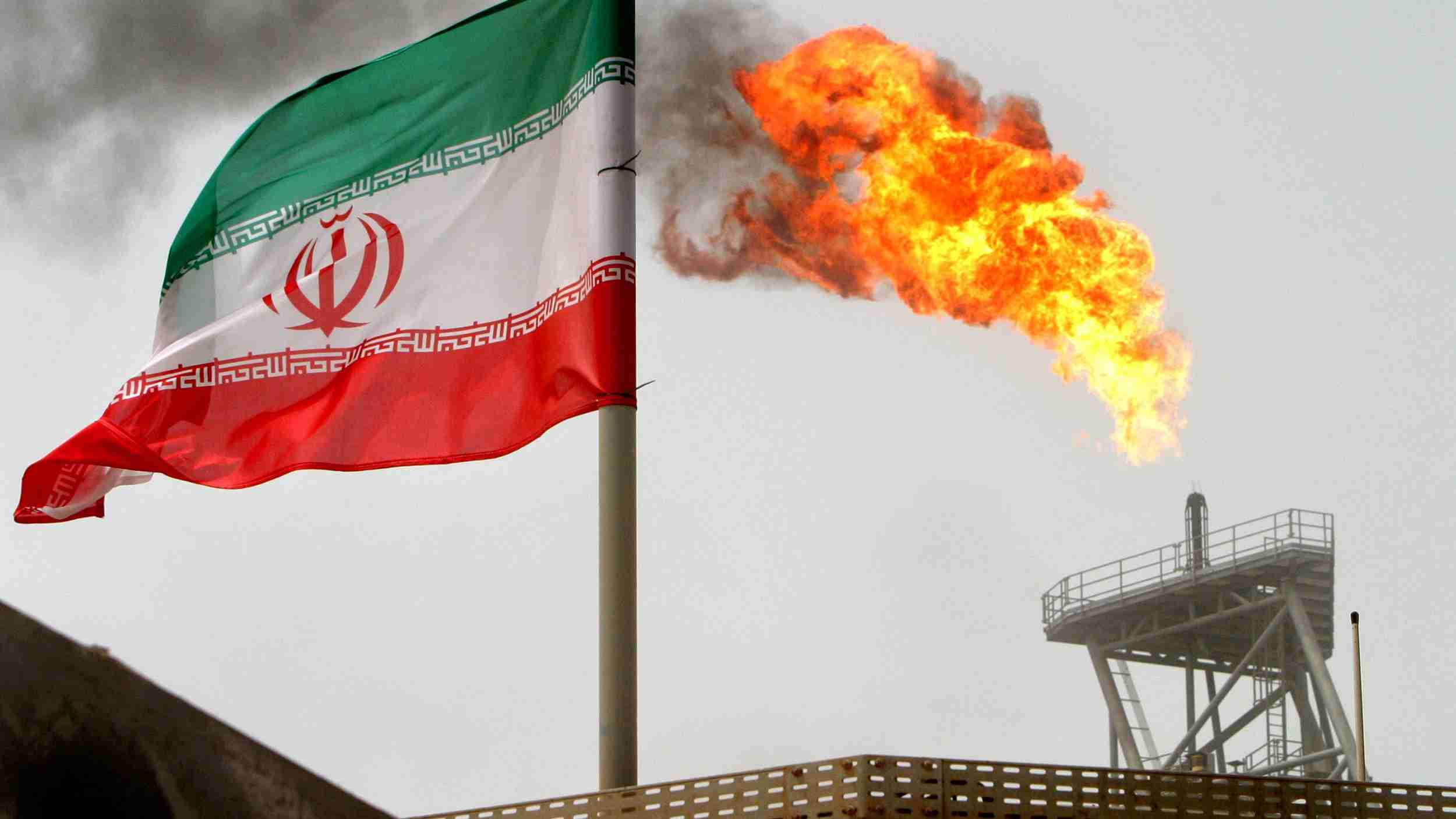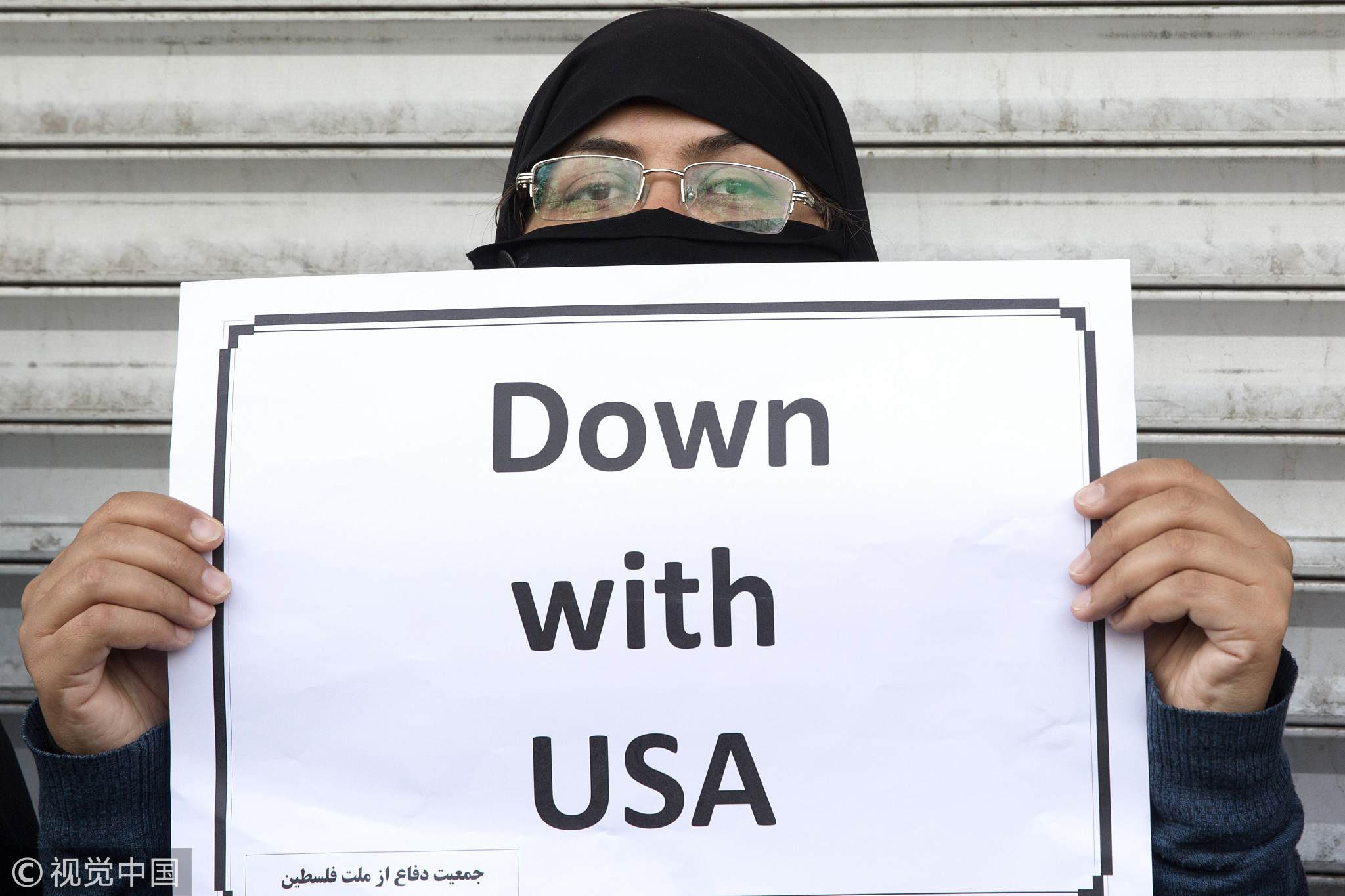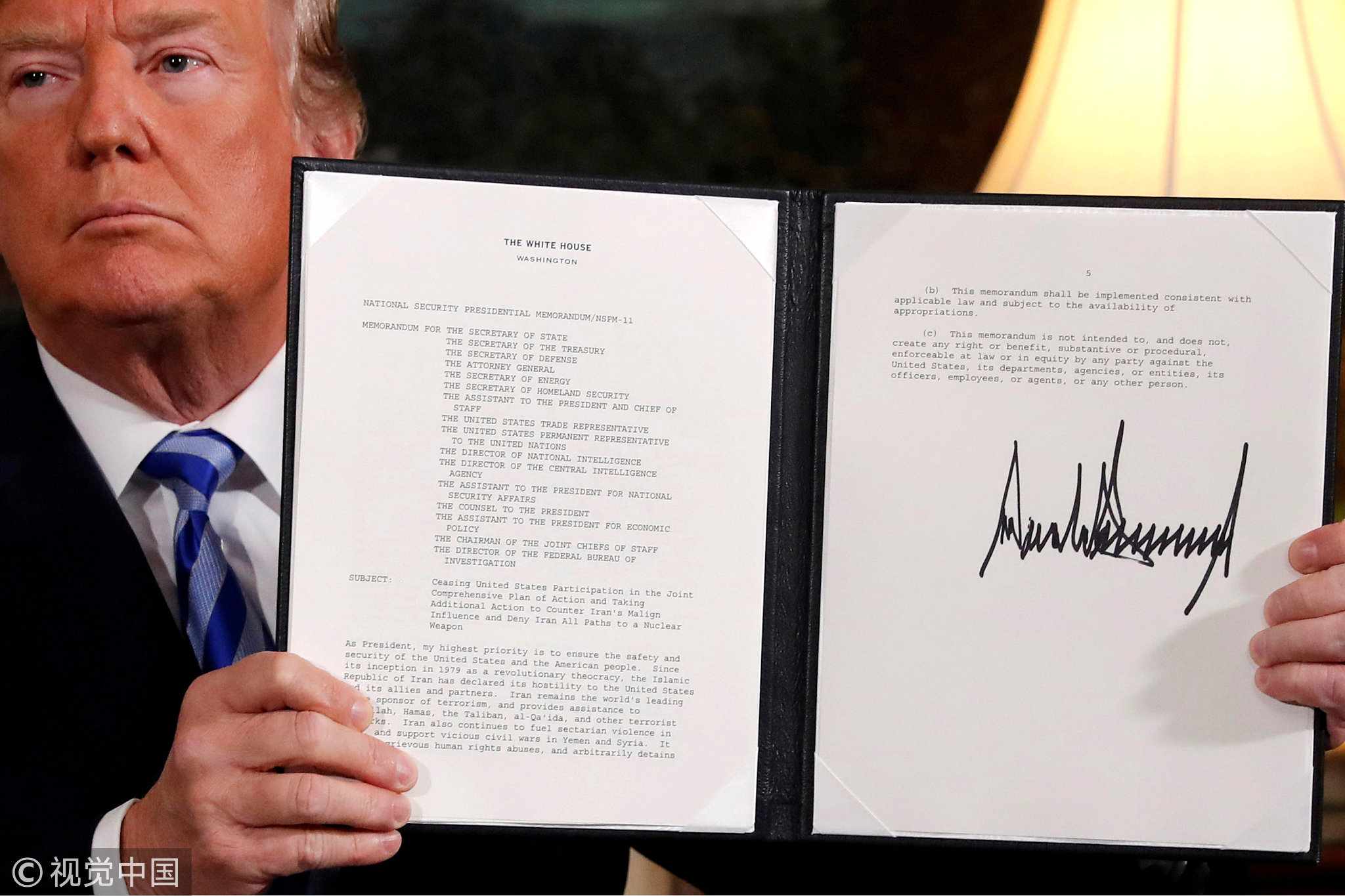
Opinion
13:48, 22-Apr-2019
Ending Iranian oil waivers is a bad strategic choice
Tom Fowdy

Editor's note: Tom Fowdy is a British political and international relations analyst and a graduate of Durham and Oxford universities. He writes on topics pertaining to China, the DPRK, Britain, and the U.S. The article reflects the author's opinion, and not necessarily the views of CGTN.
According to the Reuters, the U.S. will announce on Monday that it would end what it describes as "sanctions waivers" for countries who import Iranian crude oil, stating that those who continue to do so will be subject to American unilateral sanctions.
Having re-imposed measures on Iran the previous year, withdrawing from the Joint comprehensive plan of Action (JCPOA) or nuclear agreement, the U.S had granted a number of countries temporary exemptions, including China, Japan, Italy, Greece, South Korea, etc. Now, however, in the aim to accelerate pressure economic on Tehran with the implicit goal of aiming to bring its regional ambitions to a halt, it has set the specified goal of attempting to end its oil exports outright.

A gas flare on an oil production platform is seen alongside an Iranian national flag in Iran. / VCG Photo
A gas flare on an oil production platform is seen alongside an Iranian national flag in Iran. / VCG Photo
The move is a textbook example of the Trump administration's unilateral centric "America First" policy, illustrating the administration's willingness to coerce and negate allies into following its will. While ending such waivers are likely to convince others to follow suit via the pressure of the dollar in the oil trade, in the long run, the persistent weaponization and unilateralism of the dollar will pose strategic consequences for Washington.
That is if it continues to override and dismiss the national interests of countries around the world on a matter so significant such as energy supply and security, efforts to move away from the dollar and establish alternative systems of payment and currency will intensify.
Unilateralism is a word we hear a lot these days. What does it mean? For beginners to international relations, it refers to a country engaging in a course of action or decision making on its own will alone, without any other states participating. In contrast, bilateralism is a set of interactions and behaviors between two countries together, and multilateralism is when a group of countries engages together in decision-making processes, which usually refers to international institutions.
On the matter of unilateralism, no term is more applicable to the foreign policy behavior of the Trump administration than this one, specifically because the administration believes it has a right to act alone and impose the U.S. will on others, upon grounds of national interest, with disregard to bilateral and multilateral processes of diplomacy. Indeed, the White House itself describes it as "America First."
There is no greater example of this foreign policy algorithm in practice than the issue of Iran.
Despite that the United States under the Obama administration had negotiated a complex multilateral agreement with the UN Security Council on solving the Iranian nuclear issue, the Trump administration decided it was not in the U.S. interests to pay adherence to the deal and withdrew from it on unilateral grounds, placing its own sanctions back on Iran accordingly, ignoring the will of the international community have continued to voice support for it.

An Iranian protester holds a sign during the 39th anniversary of the 1979 United States Embassy takeover in front of the former American embassy in Tehran, Iran, November 4, 2018. /VCG Photo
An Iranian protester holds a sign during the 39th anniversary of the 1979 United States Embassy takeover in front of the former American embassy in Tehran, Iran, November 4, 2018. /VCG Photo
In doing so, it is forcing other countries to comply with sanctions that in fact have no international or legal standing whatsoever, using the immense power of the dollar over core international markets as a weapon.
Owing to this, most countries and businesses are likely to comply by default. This does not mean they agree with the U.S. policy position, but the necessitation of self-interest means that they cannot afford to lose access to the dollar: for once you to do so, you are in effect excluded from all major international banks, financial services, investment opportunities and of course the provision to buy oil itself. Given such, they have no choice and a forced end to the oil waivers will have an impact and in turn, will hurt Iran.
However, this does not mean that there are not further diplomatic and strategic consequences down the line. As a country, to have the key source of your energy and fuel cut off by the unilateral demands of the United States is going to influence your long term strategic thinking. Such policies with no regards for diplomacy whatsoever are inherently disruptive and unwelcome.
The result is that countries will accelerate moves, as we are seeing from the European Union, Russia and China, to develop and utilize alternative payment systems beyond the United States Dollar, weakening its global range.

U.S. President Donald Trump holds up a proclamation declaring his intention to withdraw from the JCPOA Iran nuclear agreement after signing it in the Diplomatic Room at the White House in Washington, DC, May 8, 2018. /VCG Photo
U.S. President Donald Trump holds up a proclamation declaring his intention to withdraw from the JCPOA Iran nuclear agreement after signing it in the Diplomatic Room at the White House in Washington, DC, May 8, 2018. /VCG Photo
In addition, given that most of the countries affected are in fact treaty allies, such behavior further serves to undermine their faith in the United States as a reliable partner or protector, because unilaterally coercive behavior treats their national interests and perspectives with contempt. This of course ties into all the other unilateral actions by the Trump administration which have similarly targeted friendly countries in a wide range of areas.
Indeed, this is a White House which abuses and overextends U.S.-centric sanctions on an industrial scale. It runs contrary to the spirit of diplomacy and in turn, builds resentment and dissatisfaction.
So as a whole, Trump-centric unilateralism is a bad strategic choice. The bid to forcefully end exports of Iranian oil on the whim of Washington's will alone is a move that will hurt U.S. credibility, international standing and diplomatic position around the world.
Regardless of Iran's regional ambitions and Washington's desire to put a stop to them, the decision to withdraw from the JCPOA continues to be illegitimate and is perceived as such by the international community; thus the bid to forcefully twist the arms of countries around the world to follow suit will pose consequences in the long run.
(If you want to contribute and have specific expertise, please contact us at opinions@cgtn.com)

SITEMAP
Copyright © 2018 CGTN. Beijing ICP prepared NO.16065310-3
Copyright © 2018 CGTN. Beijing ICP prepared NO.16065310-3